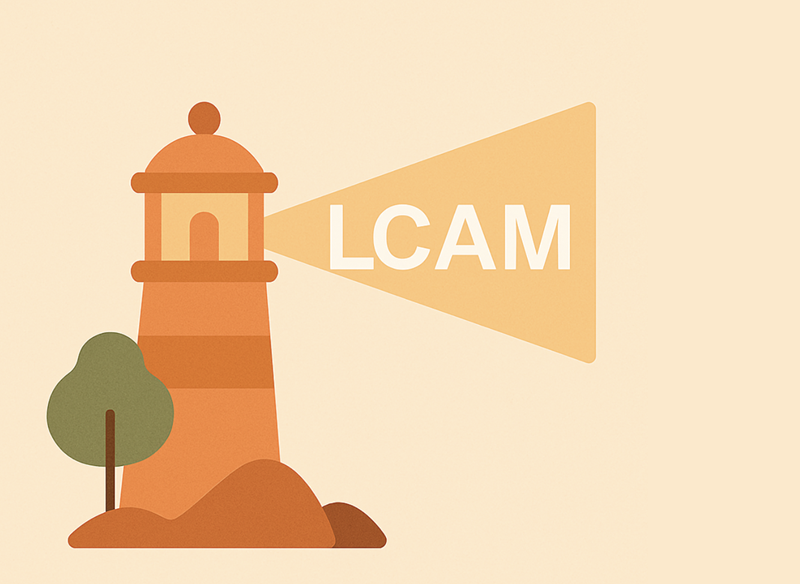Our Mission
Puma Biotechnology is a biopharmaceutical company dedicated to the acquisition, development, and commercialization of novel therapeutics for the treatment of cancer.

Clinical Trials
ALISCA™: ALISertib in CAncer
Shining a Light on Lung Cancer During Lung Cancer Awareness Month

November is Lung Cancer Awareness Month (LCAM), a time for giving some extra support to people affected by lung cancer and for sharing important information about the disease. Lung cancer is the second most common cancer in the United States.1
But even though it is common, many people still don’t understand it fully. There are still myths, stigma, and fear around lung cancer. This month, let’s shine a light on the facts and show support for everyone living with or impacted by lung cancer.
What Is Lung Cancer?
Lung cancer starts when cells in the lungs grow in an abnormal way. These cells can form a tumor and sometimes spread to other parts of the body. There are two main types of lung cancer: non-small cell lung cancer (NSCLC) and small cell lung cancer (SCLC). NSCLC is the more common type.1
Lung cancer can be caused by many things. Smoking is the most well-known risk factor, but people who have never smoked can also get lung cancer.2 Exposure to radon gas, secondhand smoke, air pollution, asbestos, and family history can also raise a person’s risk.2 It’s important to know that no one deserves lung cancer, no matter their history.
Common Symptoms
Some people don’t notice symptoms until the cancer is advanced, but here are signs to watch for:
- A new cough that doesn’t go away
- Chest pain
- Coughing up blood, even a small amount
- Hoarseness
- Shortness of breath
- Wheezing3
If you or someone you know has these symptoms, it’s important to see a doctor right away.
New Hope Through Research
There is a lot of promising research happening in lung cancer.4 In the past, treatment options were limited. Thanks to research and clinical trials, there are more options available now.
Ending the Stigma
Unfortunately, lung cancer carries a lot of stigma.5 Because smoking is a known cause, some people wrongly assume that everyone with lung cancer is or was a smoker.2 Between 10% to 20% of lung cancer patients have never smoked.6 Even so, everyone deserves care, compassion, and respect.
Breaking down this stigma may make it easier for people to talk about their cancer, seek help, and get the care they need.5
How You Can Help
You don’t have to be a doctor or a researcher to make a difference during Lung Cancer Awareness Month. Here are simple ways to show support:
- Wear a white ribbon, the color for lung cancer awareness
- Share facts on social media to help spread the word
- Support lung cancer organizations through donations or by joining an event
- Listen to and support patients and survivors in your life as a kind word goes a long way
Final Thoughts
If you are living with lung cancer, know that you are not alone. There are support groups, online communities, and resources that can help you understand your options and feel connected. Whether it’s help with transportation to treatment, emotional support, or questions about new treatments, there are people who care and want to help.
During Lung Cancer Awareness Month, let’s stand together. Let’s replace fear with facts, stigma with support, and silence with voices of hope. Together, we can shine a light on lung cancer, not just in November, but all year long.
-
1
American Cancer Society, “Key Statistics for Lung Cancer,” Last revised January 16, 2025, https://www.cancer.org/cancer/lung-cancer/about/key-statistics.html Accessed September 20, 2025.
-
2
American Lung Association, “Lung Cancer Risk Factors,” Page last updated: September 25, 2024, https://www.lung.org/lung-health-diseases/lung-disease-lookup/lung-cancer/learn-about-lung-cancer/what-causes-lung-cancer Accessed September 20, 2025.
-
3
Mayo Clinic, “Lung cancer - Symptoms and causes,” April 30, 2024, https://www.mayoclinic.org/diseases-conditions/lung-cancer/symptoms-causes/syc-20374620 Accessed September 20, 2025.
-
4
National Cancer Institute, “Advances in Lung Cancer Research, Reviewed: November 1, 2024, https://www.cancer.gov/types/lung/research Accessed September 20, 2025.
-
5
National Institutes of Health, Shen MJ, Hamann HA, Thomas AJ, Ostroff JS, “Association between patient-provider communication and lung cancer stigma,” November 9, 2015. https://pmc.ncbi.nlm.nih.gov/articles/PMC4805469/ Accessed September 20, 2025.
-
6
Centers for Disease Control, “Lung Cancer Among People Who Never Smoked,” October 15, 2024, https://www.cdc.gov/lung-cancer/nonsmokers/index.html Accessed September 20, 2025.
MRC-US-ALI-00097 10/25
